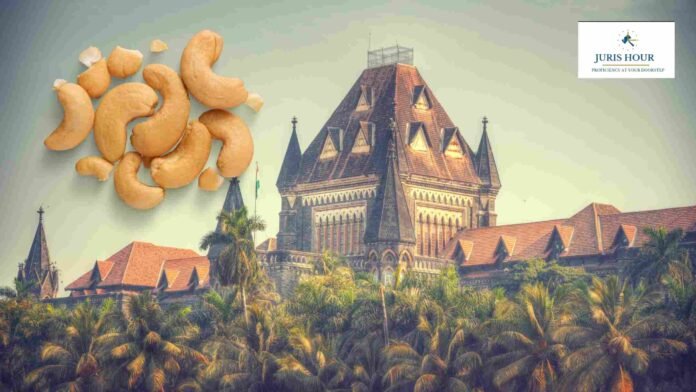The Bombay High Court while remarking that ease of doing business cannot be just on paper, frowned on customs dept. for resisting re-testing 211 tonnes of roasted cashew.
The bench of Justice M.S. Sonak and Justice Advait M. Sethna has observed that previously detained goods were sent to the laboratory in Maharashtra, it was not the appropriate occasion for the Customs Authorities to deny the facility of re-testing. Ultimately, such denial must be only occasional and that too, on reasonable grounds to be recorded in writing. The guidelines emphasised that this facility of re-testing is nothing but a trade facilitation measure, which, generally, will not be denied in the ordinary course.
The bench stated that all this emphasises the intention of the department itself that requests for re-testing should ordinarily be considered unless, of course, there are exceptional circumstances to deny them. The objective of such guidelines is to determine the correct status of the imported goods in a mutually fair manner. The object is not to trip on the importers or to make the determination of truth difficult.
“Suppose the seized goods are found to be prohibited after following a fair process. In that case, additional steps can always be taken, including re-export if allowed or paying the differential duty, which has already been secured. If the seized goods match the description declared by the petitioner, there is no point in allowing this issue to linger. This is not trade facilitation. Such an approach contradicts the objectives of the guidelines,” the court said.
The bench categorically stated that the Government of India is taking several measures for ‘Ease of Doing Business’. This is commendable. It is the duty of all Departments of the Government of India to facilitate the policy of the Government of India about the ‘ease of doing business’. The Public Notice dated 28 July 2017 is a step in that direction when it provides that this facility of re-testing is also a trade facilitation measure. This means that on paper, there is every intention to facilitate the trade. However, when it comes to implementation, stiff resistance is offered by officials who are otherwise duty-bound to implement and promote the policy of the Government of India.
Background
The petitioner’s consignments of cashew nuts were seized earlier this year under seizure memos dated 7 March 2025 and 3 April 2025 at Nhava Sheva port. Initially, samples were tested at an FSSAI-accredited laboratory in Maharashtra, which issued a report favourable to the petitioner. However, in the present instance, Customs referred samples to a laboratory in Kerala, which reported against the petitioner’s case, classifying the goods adversely.
Raichanna sought re-testing under Public Notice No. 97/2017 (28 July 2017), which provides importers the facility of re-testing as a trade facilitation measure. He argued that there was no material difference between previously detained goods (found fit by the Maharashtra lab) and the currently seized goods.
Customs authorities, however, opposed the request, contending that the re-test application was not made within the stipulated 10-day window. Only remnants or duplicate sealed samples could be tested—not fresh samples. The Kerala lab was competent since one issue involved determining whether the cashews were roasted, a speciality test.
Dr. Sujay Kantawala, the counsel for the Petitioner, relied on the public notice dated 28 July 2017 and the guidelines contained therein. He emphasised that clause 2(g), which provides that the facility of re-testing is a trade facilitation measure, which generally, will not be denied in the ordinary course. He submits that there is nothing extraordinary in this matter and the Respondents are acting quite unreasonably in denying this facility to the Petitioners.
The customs department contended that in terms of the public notice dated 28 July 2017, the request for re-testing should have been made within a period of 10 days from the receipt of the communication of the test result of the first test. He submits that in this case, the request was made much later. Secondly, he submits that a re-test would be made only on the remnants of the samples originally tested or on the duplicate representative sealed samples in the custody of the Customs. He submits that the Petitioner is now seeking the drawing of fresh samples, which is impermissible even under the public notice of 28 July 2017. On the previous occasion, samples were tested for their edibility (human consumption), and now the test was to determine whether they were roasted.
Conclusion
The court said, “we wonder at the resistance which the Customs Authorities are offering to the re-testing of this product. Such resistance is not quite consistent with the spirit of the guidelines contained in the public notice dated 28 July 2017.”
The court directed the drawal of fresh samples from out of the goods seized within five days from the date this order is uploaded in the presence of the representative of the Petitioner which is also the requirement under the Public Notice dated 28 July 2017. Such samples should now be sent to the Central Revenues Control Laboratory, New Delhi, by FSSAI. The Central Revenues Control Laboratory, New Delhi, which is not a private laboratory, but the Government of India Laboratory, is requested to submit its report within one month from the receipt of the samples. The FSSAI must communicate this order to the Central Revenues Control Laboratory and pursue the matter so that the report is received within a month from the receipt of the samples.
Case Details
Case Title: Shri Vyom Dipesh Raichanna Versus UOI
Case No.: WRIT PETITION NO.10708 OF 2025
Date: 10 September 2025
Counsel For Petitioner: Dr. Sujay Kantawala
Counsel For Respondent: Akash Vijay

